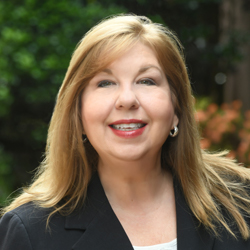
The Supreme Court of Virginia recently took up the issue of easements regarding a dispute between two neighbors over the use of their property near a lake. One neighbor (the Horns), wanted to store small boats such as canoes and skiffs on the other neighbor’s property (the Webbs). The Horns also wanted to continue to dock a pontoon boat along a retaining wall on the Webb’s property and use a light pole with electrical outlets on the Webbs’ property for the benefit of their pontoon boat. The Horns claimed a legal right to do so, while the Webbs disagreed.
To resolve this dispute, the court had to consider the legal concepts of easement, prescriptive easement, and permissive use. These concepts can be confusing for someone who is unfamiliar with them, but they are important to understand in order to fully appreciate the court’s ruling.
An easement is a legal right to use someone else’s property for a specific purpose. It can be created by an agreement between the property owners or by a court order. For example, a property owner might grant an easement to their neighbor to use their driveway to access their own property.
A prescriptive easement is a type of easement that is acquired through the use of someone else’s property for a long period of time, without the owner’s permission. In other words, if someone has been using someone else’s property for a certain purpose for a long time (usually 20 years or more), they may be able to claim a prescriptive easement.
Permissive use, on the other hand, means that someone is using someone else’s property with their permission. It is not the same as a prescriptive easement, because the person using the property has permission of the property owner.
In the Supreme Court of Virginia case, Horn v. Webb, decided 02/09/2023, the Horns claimed a prescriptive easement to store canoes and skiffs on the Webb’s land near the water because they had being doing so for a long time. However, the court ruled that the Horn’s did not have a prescriptive easement because they had only been doing so with the permission of the property owners before the Webbs moved in, which is not the same as using the property without permission.
The court did find that the Horns had a prescriptive easement to dock their boat alongside the Webb’s dock and to use the electrical outlet on the plaintiff’s property to charge their boat. This is because they had been doing it for a long time without the express permission of the property owners, and none of the previous owners of the property had stopped them.
The Horns had filed their lawsuit to assert their easement rights to continue to access the Webb’s property. The Webbs counter-sued, seeking punitive damages for the Horns’ alleged misconduct. However, the court ultimately determined that there was no evidence of malice on the part of the Horns and therefore reversed the lower court’s award of punitive damages.
Overall, this was a contentious legal battle that involved multiple claims and counterclaims. The Court’s decision ultimately hinged on the interpretation of the evidence presented and the application of relevant legal principles.
Understanding the legal concepts of easement, prescriptive easement, and permissive use is essential for anyone involved in property disputes or the practice of law. This Supreme Court of Virginia case serves as a helpful example of how these concepts can come into play and how they are interpreted in the court of law.
Written by Attorney Lisa Brook
To schedule your initial consultation, call 434-973-7474 or contact us online. Our offices are conveniently located in Charlottesville, Palmyra, Harrisonburg, and Staunton.
Litigation Attorney and Certified Mediator
























